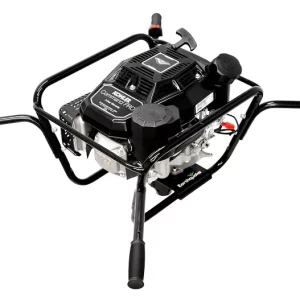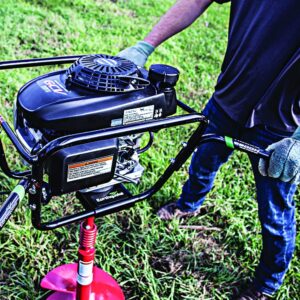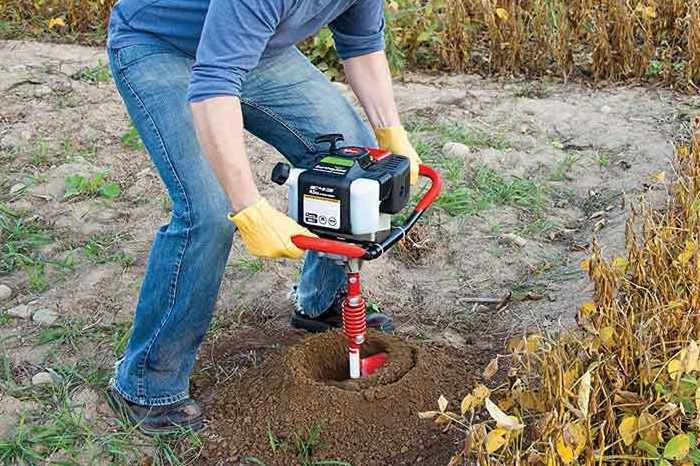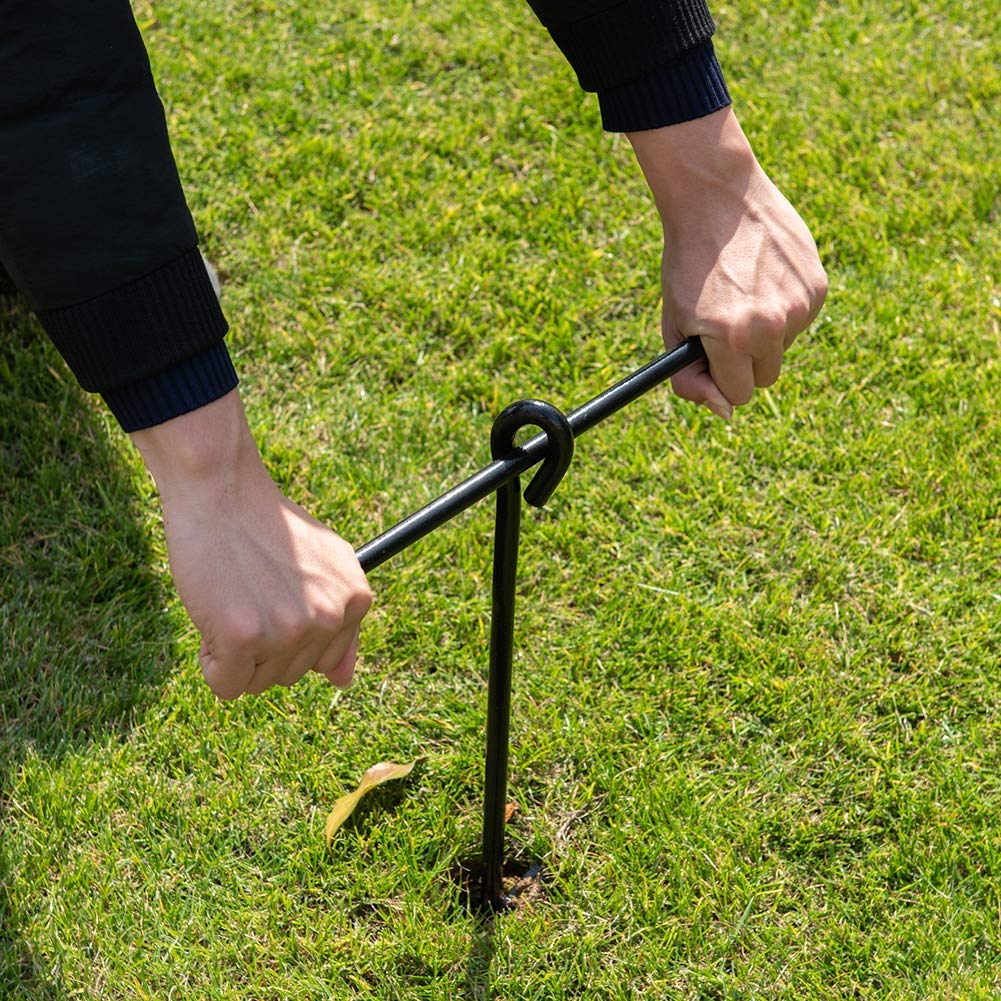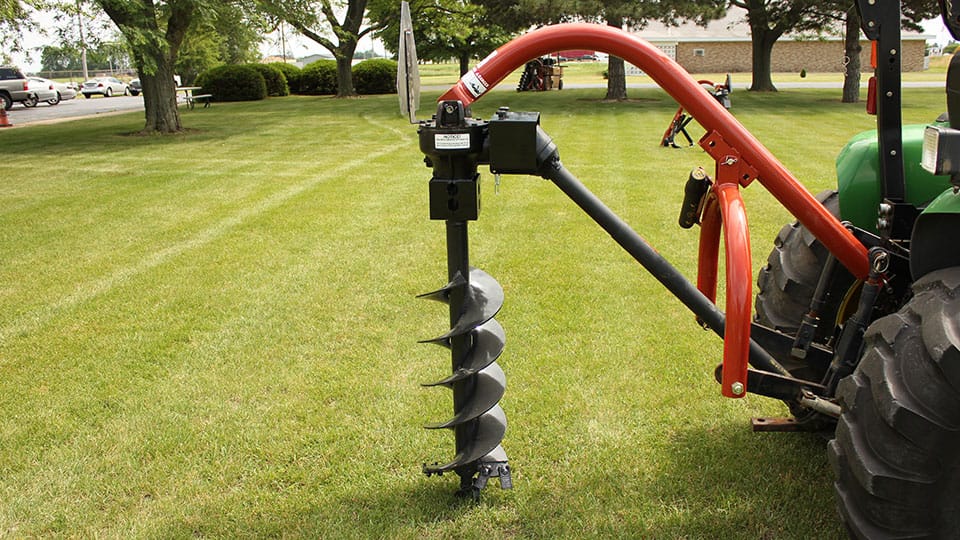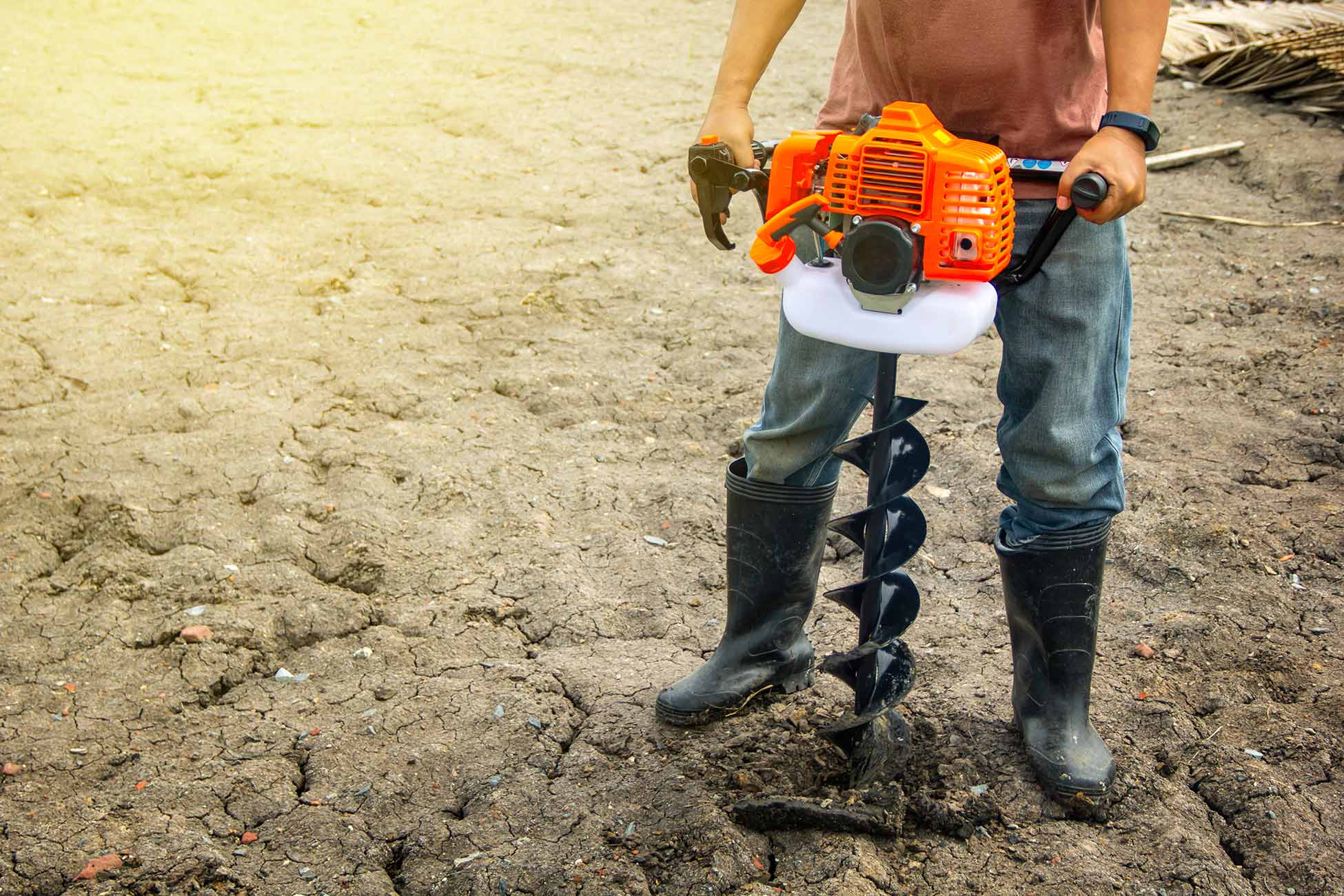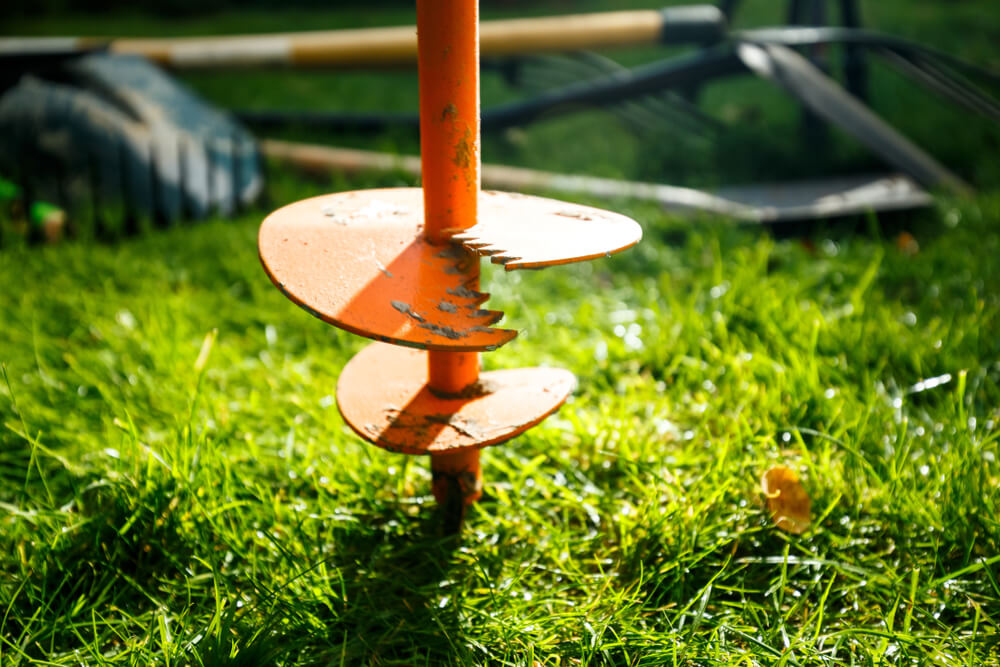If you want to install a fence around your property, but don’t know where to start, then you need to get the right size auger.
Augers come in different sizes and shapes. Some are designed for general purposes, while others are specifically built for specific jobs.
What Size Auger for a 4×4 Fence Post?
The size of the auger used to install a fence post will vary depending on the type of soil where it is to be placed. When installing posts in clay or rocky soils, an auger with a diameter of at least 4 inches is recommended.
Soil that contains a high amount of sand or gravel will require an auger with a smaller diameter since these materials are easier to penetrate than clay or rock.
While there are many factors to consider when choosing the right size auger, the main consideration is the diameter.
The bigger the hole, the deeper the auger must go.
So, if you’re installing 4×4 fencing posts, you’d probably want to buy an 8″ auger.
The 8″ auger should be able to drill into the ground without breaking through the surface. This means that you can easily remove the auger from the hole once the job is done.
An 8″ hole also provides enough space for the fence rails to fit inside. And can provide room for adding concrete after the fence has been installed.
Read More: How To Use Post Hole Digger?
- You’ll need to take into account the depth of the hole you’re planning to dig. You’ll also need to consider the length of the hole. If you’ve got a long hole, you’ll need a longer auger. But if you only need to drill a short distance, you’ll need a shorter auger.
The depth of your post hole plays a critical part in the stability of your posts. The longer the hole, the more stable they’ll be.
A 36-inch deep hole is considered adequate for most applications. But if you have particularly sandy soil, you might want to dig a 40-inch hole.
This way, you’ll avoid having to dig up the post again later on.
- Finally, you’ll need to think about the width of the hole. When installing fence posts, you’ll usually need to create a hole that’s wide enough to accommodate the base of the post. The thicker the post, the more weight it can support.
However, if you’re just creating a small hole for a decorative purpose, you don’t need to worry about making the hole wider.
The size of an auger is determined by its diameter. The smaller the diameter, the more powerful it will be.
Post Saver Sleeve: Save Your Post
Replacing damaged parts of a fence can be time-consuming and costly. You can save yourself both headaches and money by using Postsaver. These post-saving sleeves are a must-have if you’re a professional or a homeowner who needs extended protection.

Keeping a fence in pristine condition is easier with post saver sleeves. Also, you can use Postsaver sleeves to prevent grass trimmers and termites from damaging your wood posts. You can reinforce pasture fence posts more quickly using these moisture barriers, so you can spend your time on more meaningful tasks on your farm or ranch. Pressure-treated posts can even be prevented from leaking chrome, arsenic, or creosote.
A common mistake people make when buying an auger is that they buy one too big. This can cause problems later on because it may not have enough power to cut through concrete or other hard materials.
When drilling holes for fence posts, make sure that they are straight and vertical. These are important because the fence posts will rest directly on top of them.
When installing fence posts, you should always try to keep the hole as close to perpendicular as possible. This will help ensure that the fence posts stay upright and stable.
In some cases, you might even have to dig two or three holes to find the perfect spot.
Once you’ve found the perfect location, mark the center of each hole using stakes or string.
Read More: How To Dig A Post Hole Without A Post Hole Digger?
So before you purchase an auger, measure the hole you plan to use it for. Then look at the specs on the manufacturer’s website to determine what size auger you need.
If you’re unsure about which size auger to get, you can always ask someone who knows their way around a toolbox. They’ll be able to tell you which size auger you need based on your project.
As mentioned earlier, you can find augers in different sizes from different manufacturers. To help you make the right choice, we’ve put together a list of the top five brands of augers based on customer reviews. These companies range from big names like XtremepowerUS to lesser-known brands.
We’ve included some features to help you decide which brand suits your needs best.
Features to Consider When Buying an Auger
When shopping for an auger, you’ll want to consider several things.
- Know how much force you’ll need to apply to the material you’re drilling.
- Consider the weight of the auger. A heavier auger will mean less strain on your back and arms.
- Type of auger. Electric or gasoline-powered. Gasoline augers used to be more powerful than electric ones. However, nowadays, electric augers are as good as gas-powered ones.
- You’ll want to pay attention to the warranty on the product. Some augers come with a limited warranty while others offer a lifetime guarantee.
- Check out the quality of the product. Look for a company that offers a solid reputation for providing high-quality products.
- Ensure that the auger works well. Check online forums and review sites to see if anyone else has had any issues with the product.



